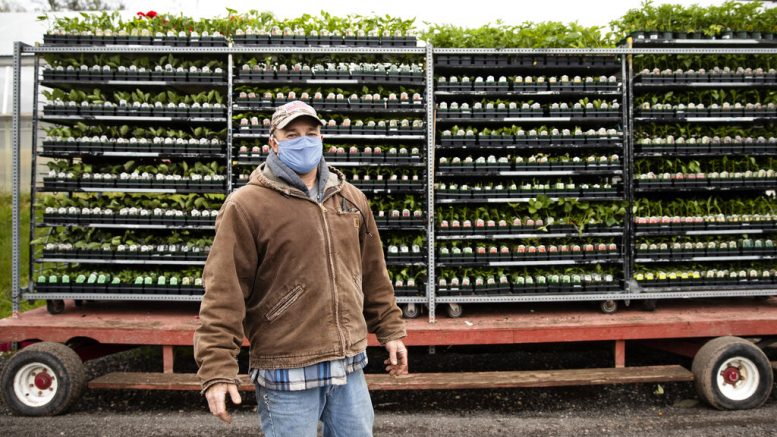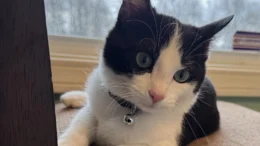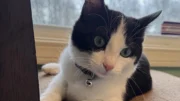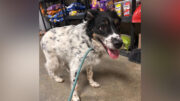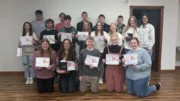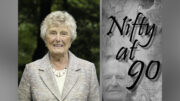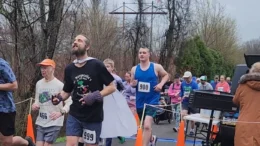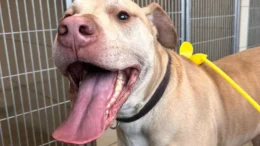HARRISBURG (AP) — Golfers, boaters, anglers and campers got some good news Monday when Gov. Tom Wolf announced some restrictions on those outdoor activities will be loosened in the coming days.
Wolf said golf courses, marinas, guided fishing trips and privately owned campgrounds will be allowed to reopen on Friday, as long as they comport with state-issued guidelines to operate safely during the COVID-19 pandemic.
Campgrounds in state parks will remain closed until mid-May, at least.
Wolf said in a statement that the reopenings amount to “measured limited steps” that will help the economy and be good for mental health.
Robert Kleckner, president of the Pennsylvania Golf Course Owners Association, said his organization pushed hard over the past six weeks to have golf considered a permissible activity.
“It’s pretty emotional,” Kleckner said after learning of the decision. “You know, we lost hundreds of thousands of operational dollars — every course did. Not profit dollars. What a relief to myself and my family.”
Kleckner said about a quarter of states still have restrictions on golf to help mitigate the pandemic spread. Pennsylvania has more than 500 golf courses.
ELECTIVE SURGERIES
The Department of Health said Monday that hospitals and outpatient centers may resume elective surgeries if they can show they won’t jeopardize patient safety or their ability to respond to a sudden spike in COVID-19 patients.
The Wolf administration had ordered hospitals to postpone elective procedures last month in an effort to preserve hospital capacity and medical supplies. The health secretary, Dr. Rachel Levine, said Monday the department has issued guidance allowing the procedures to resume, as long as a hospital can show it has enough personal protective equipment and meet other conditions.
An analysis commissioned by The Hospital and Healthsystem Association of Pennsylvania said the cancellation of elective surgeries and deferral of medical treatments — from which hospitals derive a large portion of their income — resulted in a nearly $1 billion revenue hit in March alone.
MAIL-IN VOTING LAWSUIT
A new lawsuit seeks to force Pennsylvania elections officials to accept absentee or mail-in ballots as long as they are received within a week after the primary or general elections during the COVID-19 pandemic.
The groups and voters who filed the lawsuit on Monday with the state Supreme Court argued current deadlines threaten to invalidate otherwise properly cast votes.
They are seeking to have the court order that ballots be accepted if they are mailed by election day and received within a week afterward.
They argue that postal delays from the COVID-19 pandemic could cause ballots to be received too late to count. The deadline for county elections offices to receive absentee and mail-in ballots is currently 8 p.m., when polls close, on election day.
Pennsylvania’s primary has been postponed until June 2.
The state legalized mail-in ballots last fall and they will be used for the first time this year.
CASES
Nearly 900 additional cases of COVID-19 were reported in Pennsylvania on Monday by the state Health Department, raising the total to more than 42,000 since the pandemic began.
The agency said there have been nearly 1,600 deaths from the coronavirus outbreak so far. About 50 additional deaths were reported over the past day.
The number of infections is thought to be far higher because many people have not been tested, and studies suggest people can be infected with the virus without feeling sick.
Most hospitalizations and deaths have occurred in patients 65 or older, officials said. The disease has spread to every county in the state.
For most people, the virus causes mild or moderate symptoms that clear up in a couple of weeks. Older adults and people with existing health problems are at higher risk of more severe illness, including pneumonia, or death.
HIGH SCHOOL GRADUATION
Wolf dashed any remaining hope that a high school senior might be able to participate in a traditional graduation ceremony. It’s not happening, he said Monday.
The virus “has made it impossible for traditional graduation ceremonies to take place,” he said in a video message. “A lot of you are probably feeling angry about this, and you have a right to feel that way because you have been dealt a bad hand.”
Wolf’s reopening plan bans large gatherings even in regions of the state where pandemic restrictions are being eased starting May 8.
“We have all had to make sacrifices to keep ourselves and our loved ones safe during this pandemic and this has been a big one,” said Wolf, offering congratulations to the class of 2020.
GARDEN CENTERS
A proposal to force the Wolf administration to open lawn and garden retail suppliers passed a House committee on Monday with unanimous Republican support and a few Democratic “yes” votes.
The Agriculture and Rural Affairs Committee approved that bill as well as a measure to let pet groomers open. Both categories of business would have to be able to operate in accordance with federal social distancing guidelines.
The bills still require action from both chambers and the governor’s signature.
Gardeners are now starting the spring planting season with severely limited access to seeds, seedlings, fertilizer and other material.
Wolf closed down garden centers as part of a March 19 order that closed businesses not deemed necessary to sustain life.
CONTACT TRACING
Levine said Monday a plan will be made public later this week about how Pennsylvania will trace the contacts of people infected with the coronavirus to help control its spread.
Levine said the tracing, a prerequisite under the administration’s reopening plan to loosen social distancing restrictions, will have multiple components, including work by public health nurses.
Levine said county and municipal health departments, hospitals and health systems will also contribute. She said volunteers and new hires, people she called “disease detectives,” will be involved. She did not say when this week the plan will be released but said it will be in place by May 8.
The tracing will also involve the use of technology to trace contacts, which Wolf said Monday needs to be sensitive to people’s privacy needs.

